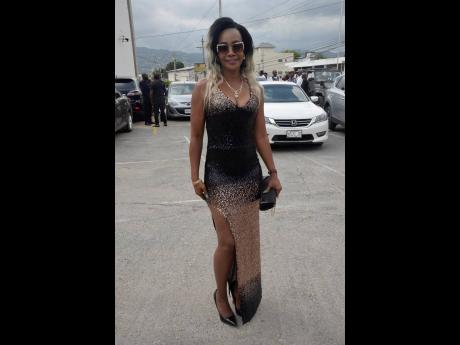Fashion, bling, rock lit funerals - Diaspora weighs in
New York:
My earliest recollection attending a funeral in Jamaica was for a friend who had died tragically in a motor vehicle accident at the Petersfield Square in Westmoreland. I was only a nine-year-old, but felt devastated. Families and friends of the deceased consoled each other at the funeral. It was a sombre occasion. Fast forward to 2019 and the situation at some funerals have changed drastically.
Some, especially youths in inner city communities, consider that a wake or funeral should be a celebration of the life of the deceased, such as the festive, bling, dancehall funerals for prominent inner-city celebrities such as dancer Gerald ‘Bogle’ Levy, William ‘Wille Haggart’ Moore, and recently, music promoter Owen ‘Roy Fowl’ Clarke, of the British Link Up Crew. Hymns and other religious songs at these events are supplemented by the latest reggae and dancehall songs, that blasted from high- powered sound systems. Food at a wake is a must while liquor is expected to flow copiously. It’s a full-on, party vibes, with vendors who cash in on the opportunity.
A recent video I watched on Instagram brought home the point of how customs and traditions are dynamic. The video showcased Spice’s dancehall hit song, Cool It Down, being played at a funeral. Numerous scantily clad females are seen in the short clip, dancing as they sing the lyrics to the song, word-for-word.
Another video with the hashtag #jamaicafuneralbelike, showed two young females, dancing provocatively to a popular dancehall song. In the IG post, the question is asked, “Can we do funerals like this in Canada???” suggesting the person lives in the diaspora. “I don’t know but it was lit!” was the response.
Is it the new norm to celebrate at a funeral or wake like it’s a dancehall session? We spoke with a few Jamaicans in the diaspora to get their thoughts.
“Things will, and rightfully should, change and evolve, but the changes should be for the betterment of mankind,” Clive ‘Kali’ Drummond, who grew up in Westmoreland, told The Sunday Gleaner.
Drummond, who has lived in New York for over 20 years, prides himself on being in the know about most things Jamaican. “It’s one thing to celebrate the life of an individual, but debase with vulgarity, mockery, and utter ignorance are several steps backwards in the growth of our society. Poverty, ignorance, and illiteracy is a master blend for these downtrodden imbeciles,” he shared.
NY based I-Land Vybzz TV host Kaefier ‘Special Kay’ Frith, who migrated to the US from Kingston 20 years ago, expressed concern as well. “As a young girl growing up in Jamaica, there were certain standards that were maintained. At funerals, people respected the occasion, the attire and the music. Nowadays, I see funerals looking like a party. Music play like it’s a dance, and the behaviour of some is utterly disgusting.”
Her hope is that morals and standards in Jamaica will return to those of yesteryear.
Esroy Bernard, who migrated to Mt Vernon, New York, from Westmoreland in the late ‘80s, had a slightly different viewpoint. “I say to each, your own thing,” he remarked. “Jamaicans from different soci-economic and religious background, mourn their death differently. As economic times get tough, people find creative ways to survive.”
With regard to the fashion at funerals, Bernard said: “More traditional folks from the colonial era and who are churchgoers wear black as it symbolises mourning. Women from the inner city take the funeral dressing to a different level. They infuse their own style and fashion in the mix.”
Changing times
Dave Brown, a Jamaican based in Toronto, Canada, said that things are different today to when he migrated 30 years ago. “Times have changed. The good thing is it’s only a few funerals you will see this type of dancehall behaviour happening.
It’s a young people thing. Youthful exuberance! For the most part, not all Jamaicans act this way,” he reassured those concerned.
“The dressing is not a big thing to me. Over the years, we see the wearing of different colours and fashion that has become the accepted norm. Today’s generation will wear whatever they want,” he added.
Mark White, a construction manager, who worked and lived in Montego Bay before he migrated to Toronto more than 17 years ago, has a plausible explanation for why the funeral celebration space has changed.
“Jamaican dancehall culture has consumed the minds of the youths. All aspects of their life now reflect that culture,” he reasoned.
“If the behaviour at the funeral is in line with the lifestyle of the deceased and is sanctioned by family members, then no disrespect is shown. Africa, the origin of many dancing rituals, has funeral ceremonies of a similar nature,” he noted.

